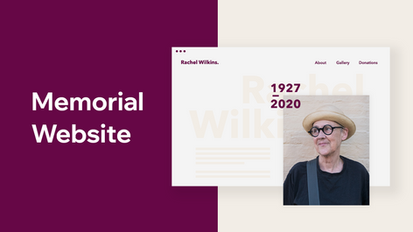Quick Web&Design Guide
Web&Design FAQ
Web&Design
In today’s digital world, having a website is essential for any business or individual looking to establish an online presence. However, building a website can be an intimidating task for those who are not tech-savvy. Fortunately, there are several easy-to-use website builders available that make creating a professional-looking website a breeze. One of the easiest sites to build a website on is Wix.

A Beginner’s Guide to Web&Design
Web&Design
Website builders are online platforms that allow you to design and customize your website without any coding knowledge. They provide a user-friendly interface with drag-and-drop features, making it easy for anyone to create a website in a matter of hours. With so many website builders available, it can be overwhelming to choose the right one for your needs. In this article, we will discuss the best site to build a website and why it stands out from the rest.
Wix is one of the most popular website builders on the market, and for good reason. With over 180 million users worldwide, Wix offers a wide range of features and customization options to help you create a visually stunning website. Whether you’re a small business owner, freelancer, or creative professional, Wix has everything you need to bring your website to life.
One of the key features that sets Wix apart from its competitors is its drag-and-drop editor. This intuitive tool allows you to easily add and customize elements on your website, such as text, images, videos, and more. You can choose from hundreds of templates designed for different industries, or start from scratch and create a unique design that reflects your brand.
In addition to its user-friendly interface, Wix also offers a variety of advanced features to help you optimize your website for search engines. With Wix SEO Wiz, you can easily improve your site’s visibility on Google and other search engines by optimizing your meta tags, headings, and content. Wix also provides built-in tools for social media integration and email marketing, allowing you to promote your website and engage with your audience.
Another standout feature of Wix is its App Market, which offers a wide range of third-party apps and integrations to enhance your website’s functionality. Whether you need an online store, booking system, or live chat support, you can find the right app to meet your specific needs. Wix also offers a mobile editor, allowing you to optimize your website for mobile devices and reach customers on the go.
When it comes to pricing, Wix offers a variety of plans to suit different budgets and needs. Whether you’re looking to create a simple personal website or a full-scale e-commerce store, Wix has a plan for you. With its free plan, you can create a basic website with Wix branding, while its premium plans offer additional features such as a custom domain, ad removal, and e-commerce capabilities.
Importance of Web Hosting
Web hosting is essential for any website to be visible on the internet. Without web hosting, your website would not be accessible to users. When you sign up for a web hosting service, you are essentially renting server space where your website files are stored. The web hosting provider ensures that your website is available to users 24/7, and also provides technical support and maintenance services to keep your website running smoothly.
Another important aspect of web hosting is website speed and performance. The speed at which your website loads can have a significant impact on user experience and search engine rankings. A reliable web hosting provider will ensure that your website loads quickly and is accessible to users across the globe. In addition, web hosting providers offer security features such as SSL certificates and regular backups to protect your website from cyber threats and data loss.
Different Types of Web Hosting
There are several types of web hosting services available, each with its own set of features and benefits. The most common types of web hosting are:
1. Shared Hosting: Shared hosting is the most basic and affordable type of web hosting. In this setup, multiple websites share the same server resources, including storage space, bandwidth, and CPU power. Shared hosting is ideal for small businesses and individuals with low traffic websites.
2. VPS Hosting: VPS (Virtual Private Server) hosting is a step up from shared hosting. In VPS hosting, websites are hosted on virtual servers that mimic dedicated servers but share server resources with other websites. VPS hosting offers more control and customization options compared to shared hosting.
3. Dedicated Hosting: Dedicated hosting provides users with their own physical server. This type of hosting is ideal for websites with high traffic and resource-intensive applications. Dedicated hosting offers the highest level of performance and security but is also the most expensive option.
4. Cloud Hosting: Cloud hosting is a flexible and scalable hosting solution that utilizes cloud infrastructure to host websites. In cloud hosting, websites are hosted on a network of virtual servers that can be easily scaled up or down based on demand. Cloud hosting is a cost-effective option for websites with fluctuating traffic levels.
Factors to Consider When Choosing a Web Hosting Provider
When choosing a web hosting provider for your website, there are several factors to consider to ensure that you are getting the best service for your needs. Some of the key factors to consider include:
1. Reliability and Uptime: It is crucial to choose a web hosting provider with a proven track record of reliability and uptime. Look for providers that guarantee uptime of at least 99.9% and have robust infrastructure to prevent downtime.
2. Performance and Speed: Website speed and performance are critical for user experience and search engine rankings. Choose a web hosting provider that offers fast servers and optimized performance for your website.
3. Security Features: Security is a top priority for websites, especially those that handle sensitive information. Look for web hosting providers that offer SSL certificates, regular backups, and other security features to protect your website from cyber threats.
4. Customer Support: If you encounter technical issues or need assistance with your website, reliable customer support is essential. Choose a web hosting provider that offers 24/7 support via multiple channels such as phone, email, and live chat.
5. Pricing and Plans: Compare pricing and features across different web hosting providers to find a plan that fits your budget and needs. Consider factors such as storage space, bandwidth, and scalability when choosing a hosting plan.

The Benefits of Web&Design
Web&Design
In conclusion, no code web builders have transformed the web development industry by providing a user-friendly, cost-effective, and efficient solution for building customized websites. This innovative technology has empowered individuals and businesses of all sizes to create professional-looking websites without the need for coding skills or technical expertise. No code web builders offer a wide range of benefits, including time and cost savings, flexibility and customization, user-friendliness, and ease of maintenance. As the demand for no code web builders continues to rise, it is clear that this technology will play a key role in shaping the future of web development.

